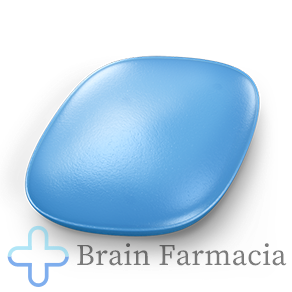Understanding Pharmaceuticals
Pharmaceuticals, also known as drugs or medicines, are substances that are developed to prevent, diagnose, treat, or cure diseases and medical conditions. They are formulated through a rigorous process that involves extensive research, testing, and regulatory approvals. Pharmaceuticals can be categorized into various types, including prescription drugs, over-the-counter medications, and biologics.
Prescription Drugs
Prescription drugs are medications that require a valid prescription from a healthcare professional, such as a doctor or a pharmacist. These drugs are typically used to treat specific medical conditions and require careful monitoring and supervision. Prescription drugs can be highly potent and may have potential side effects or interactions with other medications. It is crucial to follow the prescribed dosage and instructions to ensure the safe and effective use of these drugs.
Over-the-Counter Medications
Over-the-counter (OTC) medications are drugs that can be purchased directly from a pharmacy or a retail store without a prescription. These medications are intended to treat common ailments and symptoms such as headaches, cough, cold, allergies, and pain relief. While OTC medications are generally safe for self-use, it is essential to read and follow the instructions on the product packaging to ensure proper dosage and usage.
Biologics
Biologics are a specialized category of pharmaceuticals derived from living organisms, such as bacteria, yeast, or cells. Unlike traditional chemical-based drugs, biologics are produced using biotechnology processes and techniques. These medicines target specific molecules or pathways in the body and are commonly used to treat complex diseases such as cancer, autoimmune disorders, and genetic conditions. Biologics are typically administered through injection or infusion and require careful handling and storage.
Role of Pharmaceuticals in Healthcare
Pharmaceuticals have revolutionized healthcare by providing effective treatments for a wide range of diseases and medical conditions. The role of pharmaceuticals in healthcare includes:
Prevention
Pharmaceuticals play a crucial role in preventive healthcare. Vaccines, for example, help prevent the spread of infectious diseases by stimulating the immune system to develop immunity. Other preventive medications include those used to manage chronic conditions and reduce the risk of complications, such as statins for cardiovascular diseases.
Diagnosis and Treatment
Pharmaceuticals are extensively used in the diagnosis and treatment of various medical conditions. Diagnostic agents, such as contrast dyes used in imaging tests, help healthcare professionals visualize organs and tissues for accurate diagnosis. Treatment medications, on the other hand, target the underlying cause of the disease or manage its symptoms, improving patient outcomes and quality of life.
Research and Development
Pharmaceutical companies invest heavily in research and development to discover new drugs and therapies. This ongoing innovation drives advancements in healthcare and leads to the discovery of breakthrough treatments. Research and development also involve clinical trials, where pharmaceuticals are tested for safety and efficacy before being approved for widespread use.
The Impact of Pharmaceuticals on Society
The availability of pharmaceuticals has had a profound impact on society. Some key impacts include:
Improved Life Expectancy
Pharmaceutical advancements have significantly contributed to the increase in life expectancy worldwide. The development of medications for chronic conditions, such as diabetes and hypertension, has helped individuals manage their health effectively, leading to longer and healthier lives.
Enhanced Quality of Life
Pharmaceuticals have improved the quality of life for many individuals by alleviating symptoms, controlling pain, and managing chronic conditions. Patients can lead more fulfilling lives and engage in daily activities with the help of appropriate medications.
Economic Growth
The pharmaceutical industry plays a vital role in the economy by driving economic growth and creating job opportunities. Pharmaceutical companies invest in research, manufacturing, distribution, and marketing, contributing to the overall development of countries and regions.
Ethical and Regulatory Considerations
Pharmaceuticals are governed by strict ethical principles and regulatory frameworks to ensure patient safety and protect public health. Regulatory bodies enforce standards regarding drug development, manufacturing, labeling, advertising, and distribution to maintain the highest level of quality and accountability.
Conclusion
Pharmaceuticals are essential for improving patient health and well-being. Understanding the different types of pharmaceuticals, their role in healthcare, and their impact on society is crucial in promoting safe and effective use of medications. The pharmaceutical industry continues to drive innovation and contribute to advancements in healthcare, benefiting individuals and society as a whole.






